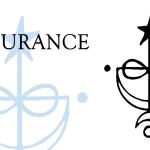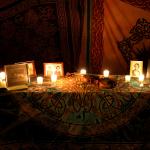Over the course of my last several posts, I have been examining some of the broader cultural and historical forces that have shaped and informed Modern Paganism. That work is by no means complete, but it is also a huge and expansive work. I do feel that I have, at least, begun to demonstrate that Modern Paganism is grounded in the history of Western Culture and is largely the result of the same cultural forces that have shaped our advance into the twenty-first century.
It is my honest belief that a proper understanding of Paganism, its history and its present, is vital if we are going to continue to move forward as a community into this next century. The same forces that our progenitors strived against in order to form Modern Paganism are still acting upon us and will tear our community apart if we are not attentive. Indeed, the great burst of action that set about the development of Modern Paganism was the initial reaction against increasing industrialization and the growth of materialism, scientism, and egocentrism that accompanied it. Now, these same trends continue to work against the Pagan community.
Some of these trends are, I believe, very apparent within the community, namely egocentrism. In my last article, I discussed the particularly American idea of spiritual iconoclasm. I suspect that for many Pagans this iconoclasm has begun to run amok. An example of this could even be our increasing fascination with unverified personal gnosis. Gnosis is used to justify all manner of idiosyncratic beliefs, and then, when those beliefs are questioned, the believer retreats behind gnosis and personal experience as though that is the absolute end of the discussion. This kind of behavior is incredibly dangerous to the work of community building, and I believe leads to an overindulgent, self-obsessed, special snowflake mentality. So many contemporary Pagans seem to have convinced themselves that they are in constant direct communication with their Higher Self/Guardian Angel/Dionysus/Superman that every single thought or desire is automatically given Divine imperative. This is the sort of thing that so many of us find so disturbing about the New Age community, which is almost constantly being critiqued as solipsistic and blinkered.

Further, this egocentrism seems to have blinded many people to the fact that there is a distinction between a spiritual experience and divine revelation. I may have spiritual experience reading a book or watching a movie, but that does not then mean that J.R.R. Tolkien or Peter Jackson are Gods or otherwise worthy of veneration. It simply means that my spirit was moved by my experience. It is a great mistake to think that every flutter of my heart is a direct divine message sent to me and only me. These are category errors. We, as spiritual explorers, must learn to tell the difference between our own desires and inner voices and the real, exterior, spiritual forces around us. If we are unable or unwilling to do so, then we are in no fit shape to govern the form and content of any spiritual practice.
It is even more difficult for me to see the growing cache of the “umbrella term” definition of Paganism as anything but yet another symptom of egocentrism. Not only is the “umbrella term” definition utterly vapid, it defines absolutely nothing at all. Rather than providing a coherent description by which one could understand the content or even form of Paganism, it says that anything at all can be Pagan, as long as someone, somewhere, decides to call it that. This is a further example of the kind of egocentric behavior that denies all personal responsibility and raises one’s own desires above everyone else’s. “I can be Pagan if I want to be,” is a great slogan for a t-shirt, but utterly useless as a definition, and it only serves to protect people’s feelings on the internet. I have never understood the idea that we must constantly protect people’s feelings, as if upsetting someone was a mortal sin. This is the social justice mentality gone berserk. It should not be taboo to insist the words have meanings. In fact, I believe that Aristotle had something to say on that matter…
I do honestly suspect that part of this egocentrism is a result of the idea that every individual Pagan must serve not only as their own priest, but also liturgist, mystic, healer and shaman. Unfortunately, the Pagan community is singularly ill equipped to train a person to fill any one of those roles let alone the whole constellation. If Paganism is going to continue to exist as a religious movement largely without clergy, then we must be willing to do the work to become clergy ourselves. One does not become a mystic or a shaman because one decided to identify that way. There is a great deal of work that one must undertake in order to qualify for such positions, and there are responsibilities they go hand in hand with.
The solution to at least some of this is an understanding of history, not only the history of Modern Paganism, but also some awareness of religious history in general. We are facing problems today that religions around the world have faced all across time, and if we are willing to look beyond our own immediate concerns, we may even discover that the solutions already exist. We do not need to spend all of our time reinventing the wheel. We must, as a community, make ourselves aware of our history and our collective development. If we are going to speak of ourselves as a community, then we must educate ourselves about our community. We must support our institutions, as John Beckett has pointed out. Most of all, we must educate ourselves.
Given the amount of material that I intend to cover in this series, I have decided to turn it into an every other post affair, in order to give me the proper amount of time to do my research. I do hope that you readers have enjoyed my comments thus far.
Syncretic Electric is published on alternate Fridays. Subscribe via RSS or e-mail!

















